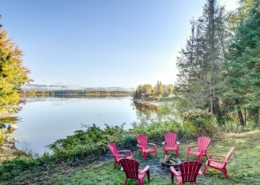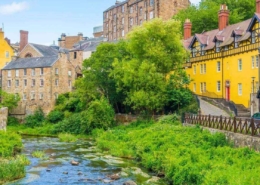Seattle Airbnb Rules: An In-Depth Handbook for Hosts
- The Best US Cities for Airbnb Business
- Reasons Why Investing in Airbnb in Seattle is a Smart Move
- Mastering the Intricacies of Taxing Airbnb Income in Seattle
In the vibrant cityscape of Seattle, Airbnb has revolutionized the short-term rental landscape. However, transitioning into an Airbnb host involves navigating a comprehensive set of rules and regulations. This guide serves as an in-depth handbook for understanding and complying with Seattle’s Airbnb rules.
Understanding the Basics of Airbnb Hosting in Seattle
The city’s rich culture, the burgeoning tech industry, and the vibrant tourism sector create a thriving market for Airbnb rentals. To seize this opportunity, understanding the Airbnb rules and regulations governing short-term rentals in Seattle is crucial.
Seattle Regulatory Landscape for Airbnb
Airbnb Statistics and Legal Issues: Seattle
Since 2019, Seattle has implemented regulations for short-term rentals, which are applicable to any rental property available for less than 30 consecutive days. These rules are designed to ensure that housing affordability isn’t adversely affected by short-term rentals.
Obtaining Necessary Permits

Before listing your property, you must obtain a regulatory license from the City of Seattle. This license requires meeting specific safety standards, including fire safety requirements, and showing proof of liability insurance with a minimum coverage of $1,000,000.
Limitations on Short-Term Rentals
Seattle allows an operator to run up to two dwelling units as short-term rentals, given they have an operator’s license. One of these units must be the operator’s primary residence, and the other can be another owned dwelling unit. The rentals can be for the entire unit or just a portion of it, such as a bedroom or an accessory apartment.
Applying for a License to Operate Short-Term Rentals
Operating a short-term rental (STR) in Seattle requires a business license tax certificate and a regulatory license for STRs. After obtaining the tax certificate, you must register your property with the Seattle Department of Construction and Inspections if it falls under Seattle’s RRIO. Finally, you can apply for the STR regulatory license via the Seattle Services Portal. The fee is $75 per unit, and the license must be renewed annually.
Essential Requirements Before Applying to be an Airbnb Host in Seattle

Before applying to become a short-term rental operator in Seattle, several prerequisites are necessary:
- Valid Seattle Business License Tax Certificate Number: This certificate is a requirement for doing business in Seattle. If you’re a new applicant, allow at least 48 hours of processing time before applying for the short-term rental regulatory license.
- Rental Registration Inspection Ordinance (RRIO) Registration: If you’re listing a non-primary residence, you must register under the RRIO, which verifies that your property meets Seattle’s health and safety standards.
- Legacy Unit Documentation: For “legacy units,” documentation demonstrating the property’s use as a short-term rental within the 12-month period prior to September 30, 2017, is necessary.
Displaying Your Short-Term Rental License
Once you have obtained your Short-Term Rental Operator License from the City of Seattle, it must be posted on all your listings, including on platforms like VRBO, Expedia, and Airbnb. It must follow the format: STR-OPLI-##-######. The platforms may remove listings without a correctly formatted license number.
Short-Term Rental License Renewal
Remember that Short-term Rental Operator licenses are valid for 12 months from the date of issue, after which they need to be renewed. This renewal can be done through the Seattle Services Portal.
Compliance and Enforcement of Seattle Airbnb Regulations

Regulatory compliance is a crucial aspect of being a short-term rental host in Seattle. Failing to maintain the required regulatory license could result in enforcement actions, including fines and penalties.
To avoid such complications, always stay up-to-date with your licensing renewals and ensure your listings display the correct license number in the prescribed format. It’s also vital to remember your license renewal date and process the renewal promptly to avoid any lapse in licensure.
Useful links:
Navigating Seattle Airbnb Regulations as a Host
As an Airbnb host in Seattle, it’s essential to understand the regulatory landscape. Always remember:
- Secure Necessary Permits: Before listing your property on Airbnb or any other short-term rental platform, ensure you have the required licenses and registrations.
- Stay Current with Renewals: Make a note of your license renewal date and make sure you renew promptly to avoid any potential enforcement actions.
- Respect Occupancy Limits: Adhere to the limitations imposed by Seattle’s short-term rental rules on the number of properties you can list and how often they can be rented. You may operate up to two dwelling units as short-term rentals if you have an operator’s license. One of these must be your primary residence, and the other can be another dwelling unit you own.
- Keep Good Records: Maintain accurate records of all your rental activity. These records may be necessary for license renewals or in case of any regulatory inquiries.
Conclusion
Being a successful Airbnb host in Seattle involves more than just creating a comfortable space for your guests. It also means fully understanding and complying with the city’s specific rules and regulations for short-term rentals. By keeping your licenses current, respecting occupancy limits, and maintaining detailed and accurate records, you can ensure a smooth and profitable hosting experience.
Moreover, successful Airbnb hosting contributes to the city’s thriving tourism industry, providing guests with a unique, personalized experience of Seattle. Despite the regulatory steps involved, the benefits of hosting, including financial gains and the opportunity to meet people from all over the world, are substantial.
So, for those considering entering the Airbnb market in Seattle, or for those already in it, stay informed, stay compliant, and happy hosting!
Check out Why Investing in Airbnb Properties in Dallas is a Fantastic Opportunity.
Explore The Evolving Landscape: Regulation of Airbnb in the City of Chicago.


















